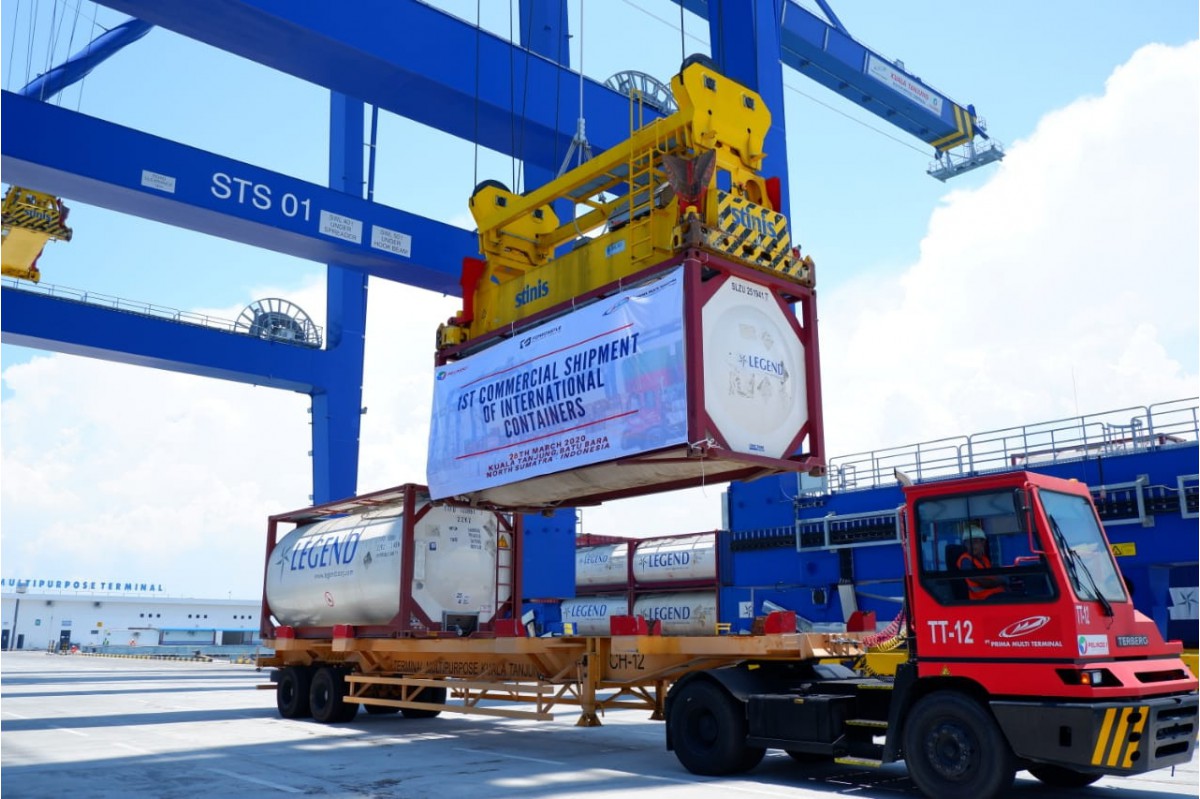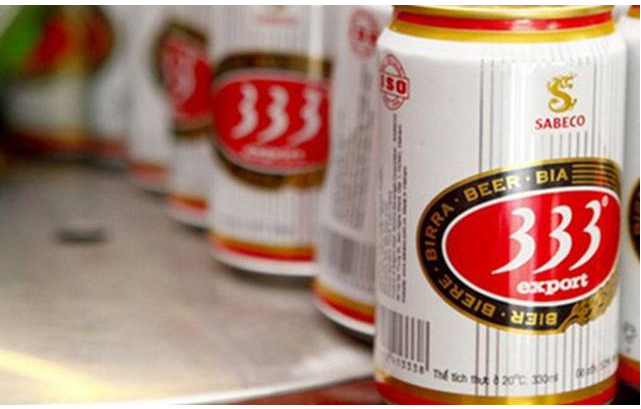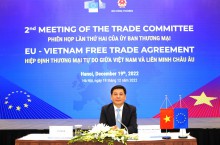The News
UK’s specific policies on imports
UK customs and tariff regulations are established by the UK Revenue and Customs Authority (HMRC). In May 2020, the UK announced the UK Global Tariff (MFN) to replace the European Union's Common Tariff System after the Brexit. This UK tax system came into effect from January 1, 2021. Accordingly, the average UK MFN tax will be only 5.7%, lower than the average MFN tax of the EU's Single Tariff System of 1.5% (currently 7.2%). For Vietnamese companies, goods exporting from Viet Nam to the United Kingdom will be entitled to the preferential tariffs under the Free Trade Agreement between Viet Nam and the United Kingdom and Northern Ireland (UKVFTA).
UK customs and tariff regulations are established by the UK Revenue and Customs Authority (HMRC). In May 2020, the UK announced the UK Global Tariff (MFN) to replace the European Union's Common Tariff System after the Brexit. This UK tax system came into effect from January 1, 2021. Accordingly, the average UK MFN tax will be only 5.7%, lower than the average MFN tax of the EU's Single Tariff System of 1.5% (currently 7.2%). For Vietnamese companies, goods exporting from Viet Nam to the United Kingdom will be entitled to the preferential tariffs under the Free Trade Agreement between Viet Nam and the United Kingdom and Northern Ireland (UKVFTA).

1. Regulations on customs and import of goods
UK customs and tariff regulations are established by the UK Revenue and Customs Authority (HMRC). In May 2020, the UK announced the UK Global Tariff (MFN) to replace the European Union's Common Tariff System after the Brexit. This UK tax system came into effect from January 1, 2021. Accordingly, the average UK MFN tax will be only 5.7%, lower than the average MFN tax of the EU's Single Tariff System of 1.5% (currently 7.2%). The UK has also doubled the number of duty-free goods compared to the past, including a number of products such as cement, freezing refrigerators, food processing machines and key inputs to support the UK’s production in timber, plastic, bicycle parts, turbine parts,... However, depending on the exporting country, enterprises may enjoy preferential tax rates on items on the basis of commitments of free trade agreements. For Vietnamese companies, goods exporting from Viet Nam to the United Kingdom will be entitled to the preferential tariffs under the Free Trade Agreement between Viet Nam and the United Kingdom and Northern Ireland (UKVFTA).
The UK's customs control system operated from January 1, 2021 with 3 main stages:
Phase 1: From 01/01/2021, traders importing goods according to normal standards will need to meet basic customs requirements and have all the usual import documents. Traders will need to be aware of the payment of value-added tax (VAT) corresponding to the value of imported goods. The customs declaration can be made in 6 months and enterprises can make payment after the customs declaration is completed. For imports into the UK in the first 6 months, businesses do not need to make a safety and security declaration. Controlled goods and excise goods such as alcohol and tobacco will need to make standard customs declarations. For some high-risk live plants and animals, customs authorities may conduct physical inspections at the destination or at approved facilities and require businesses to provide information about the shipping route in advance.
Phase 2: From 01/04/2021, all products derived from animals and plants will need prior notice and relevant health certification documents. Physical inspections will continue to be conducted at the destination until July 7, 2021.
Phase 3: From 01/7/2021, traders exporting any commodity products need to declare customs in full at the destination and pay related taxes. Enterprises need to make security and safety declarations and present documents related to animal and plant control (SPS) for relevant products at the control point. Inspections of SPS for animals, plants and other products will be carried out at the UK Controlled Gate.
Regarding procedures for exporting goods to the UK, businesses can refer to the 6-step process at the address: https://www.gov.uk/export-customs-declaration. Accordingly, the 6 basic steps to clear goods when exporting to the UK include:
- Step 1: Check which party will be responsible for customs clearance procedures. At this step, enterprises can do customs clearance procedures themselves or hire a carrier or an intermediary to perform customs clearance services for their goods. Due to the complicated customs procedures, enterprises can choose intermediaries to carry out the customs clearance of goods. At this step, the UK provides very detailed instructions on who can provide this service to the business and what information the business needs to provide to the agent.
- Step 2: Register an enterprise to make an import declaration. Businesses will need an EORI (Economic Activity Identification and Registration) number to register for customs purposes in the UK. The EORI code will start with the GB character for goods imported into England, Wales and Scotland. For Northern Ireland, the EORI code will start with the letter XI. Depending on the destination, businesses need to register correctly on a system with compatible software for customs declaration. You can learn about registering an EORI code at https://www.gov.uk/eori?
In addition, for goods originating from plants, enterprises need to register at the Department for Environment, Food and Rural Affairs (DEFRA) at the address http://edomero.defra.gov.uk/. For controlled products (such as weapons), enterprises need to register at the Department for International Trade (DIT) at the address https://www.spire.trade.gov.uk/.
- Step 3: Check that the business can quickly implement the customs process. In case you regularly declare imports, you can make some customs processes faster and easier to manage. Therefore, businesses can check on the shortened processes that businesses can perform to make declarations simpler and faster.
- Step 4: Check the declaration of customs goods. For goods exported from Vietnam, enterprises need to make customs declarations when exporting goods to the UK.
- Step 5: Transport goods through the border gate. Goods that need to be transported to a UK port or border crossing are indicated on the export declaration. At the border gate, the enterprise or the carrier needs to present the following documents:
+ Reference number taken from export declaration
+ Invoices
+ Export license or certificate (if necessary)
Customs officers will inspect the goods before clearing them for import into the UK.
- Step 6: Release the goods if the goods are held at the border gate. Goods will not be cleared and held at the border gate in some cases for the following reasons:
+ Goods or enterprises cannot present a valid license.
+ Unsatisfactory inspection result of goods
+ Goods traveling in the shipment are withheld.
In the event that the goods are withheld, UK customs will notify the business of the reason and the business needs to comply with customs requirements to be released. Businesses can search for support points at the following website: https://www.gov.uk/contact/national-clearance-hub.
.jpg)
2. SPS regulations
Although the UK is no longer part of the European Union (EU), however, the UK still uses EU SPS regulations. The UK has now incorporated these provisions into its internal law as of 30 December 2020. It should be noted that the UK's Northern Ireland Protocol stipulates that Northern Ireland will be subject to EU customs and will be subject to regulations on goods, including EU agricultural products.
For goods that are plants or derived from plants, it is necessary to ensure that these products fully meet the following regulations and technical standards:
- Regulations on the maximum residue level;
- Regulations on the control of contaminants in food;
- Microbiological criteria (for pre-cut fruits);
- Regulations on health and phytosanitary;
- Marketing standards;
- Control of food imported into the European Union;
- Product traceability;
- Regulations on labeling and packaging.
Vietnamese exporters need to cooperate with UK importers to follow the process of importing goods into the UK. Accordingly, businesses importing into the UK should keep in mind the following regulations:
Import registration. The import registration will be carried out by the UK importer through the PEACH (Import Registration) system. Businesses can also track the route of shipments through this system.
Plant Health Phytosanitary Certificate (PC). Enterprises need a phytosanitary certificate for each shipment issued by the Department of Plant Protection, Ministry of Agriculture and Rural Development of Vietnam to be able to export goods to the UK. Most goods derived from plants (including seeds) must have a phytosanitary certificate. The inspection indicated on this Phytosanitary Certificate must take place less than 14 days before the shipment is dispatched and the Certificate is also valid only for a period of 14 days. For some processed or packaged fruits and vegetables or synthetic products including processed fruits and vegetables, you do not need a PC.
Advanced notice. Through the PEACH system, enterprises must notify the plant health authority in advance about the product and be able to check the route of the import shipment. The UK requires some of the following goods to be notified before import including:
+ Crops
+ Vegetables
+ Common fruits are different from those preserved by deep freezing
+ Some cut flowers (no roots)
+ Some nuts, grains and leafy vegetables are different from those that are deeply preserved
+ Potatoes
+ Machinery or equipment for agriculture or forestry
Enterprises can look up the list of goods subject to notification before importing at the following link: The list of imported plants must notify in advance or contact the Animal and Plant Health Agency (APHA).
Advanced notice must take place at least 4 working hours prior to the arrival of goods in the UK by air and transport; and 1 business day before the goods arrive in the UK by other modes of transport.
For organic products, you will need to carry out an additional process of importing organic products into the UK in accordance with the regulations notified at the link following the Organic Product Import Guide.
Check at the border gate. When the goods are shipped to the UK, customs will check at the border gate to ensure the goods have the required documents, the right type of plant or plant origin as declared and are free of pests and diseases.
For animals and products derived from animals, businesses need to check the common diseases that animals may encounter and the relevant regulations at the https://www.gov.uk/guidance/imports-and-exports-of-animals-and-animal-products-topical-issues link. In addition, enterprises are required to register the import at the System of Import of Products, Animals, Plants and Animal Feed (IPAFFS) when importing:
- Live animals;
- Animal-derived products (POAO) need veterinary inspection;
- High-risk foods and non-animal feed (HRFNAO)
- Germ products, varieties
- Animal by-products that do not feed people need veterinary examination.
The same goes for importing plants and plant-based products, enterprises need to provide animal health certificates. In addition, in some cases, businesses will need to apply for licenses, trade papers or carry out some legal procedures for the trade of endangered animals. Regarding the import process for animals and products derived from animals, basically, enterprises can do the same as the process of importing food and plant-based products. However, some regulations that businesses should note are as follows:
- The CN code of the product can be checked in Appendix I of Regulation 2019/2007 (Appendix I) and Decision 2007/275/EC (Decision 2007/275/EC)
- List of CN codes of products that need to be checked at border checkpoints can be looked up in Regulation 2019/2007 (Regulation 2019/2007)
- List of general import licenses for certain animals and animal products (List of common licenses)
- Enterprises can look up specific regulations for each type of animal and products derived from animals at the link Guide for import and export of live animals and products derived from animals.
- Businesses need to check the List of legal UK Border Checkpoints (Approved UK BCP) to inspect goods in accordance with regulations.

3. TBT regulations
Regarding the provisions on technical barriers in trade, the UK sets TBT requirements for 2 types of goods, chemicals and cosmetics.
3.1. Chemical regulations
Because the UK was previously a member of the European Union (EU), during the transition period of Brexit, the UK still required businesses to comply with regulations on registration, evaluation, licensing and restrictions on chemicals under the EU mechanism (REACH). From January 1, 2021, after officially leaving the EU, the UK has introduced a regulatory system similar to the EU mechanism called UK REACH. This mechanism is in line with the original EU mechanism and will remain operational in accordance with the goals and principles of EU REACH. However, in the event that the EU later changes the content of the REACH mechanism, UK REACH will not automatically change accordingly.
3.2. Cosmetic regulations
Similar to other regulations, the UK transitioned to UK cosmetics regulation from January 1, 2021. EU and UK regulations on cosmetics that are currently similar will remain in place for the time being.
4. Other regulations
4.1 Regulations on customs barriers and trade facilitation
Previously, the UK joined the Trade Facilitation Agreement (TFA) within the framework of the WTO when it was a member of the EU. After Brexit, the UK announced it would continue to accept the terms of the TFA for the end of the transition period on 31 December 2022. Currently, the UK is investing heavily to develop infrastructure at border crossings and cargo control ports to support the enforcement of new requirements for import and export procedures. This could lead to an extension of customs clearance time for goods exported from Vietnam or other countries to the UK.
4.2 Regulations on geographical indications
From 1 January 2021, the UK has established its own regulations on geographical indications, which restrict the use of geographical names for food, beverages and agricultural products (including beer, cider and pear wine); carbonated drinks, alcohol and aromatic liquors. The UK's new geographical indication system will use the following designations:
- Protected Origin Designation (PDO)
- Protected Geographical Indications (PGI)
- Guaranteed Traditional Specialty (TSG)
Manufacturers from the United Kingdom and other countries can register in the UK Geographical Indication System. All products previously registered under the EU Geographical Indication System as of 31 December 2020 will remain protected by the new UK Geographical Indication system.



